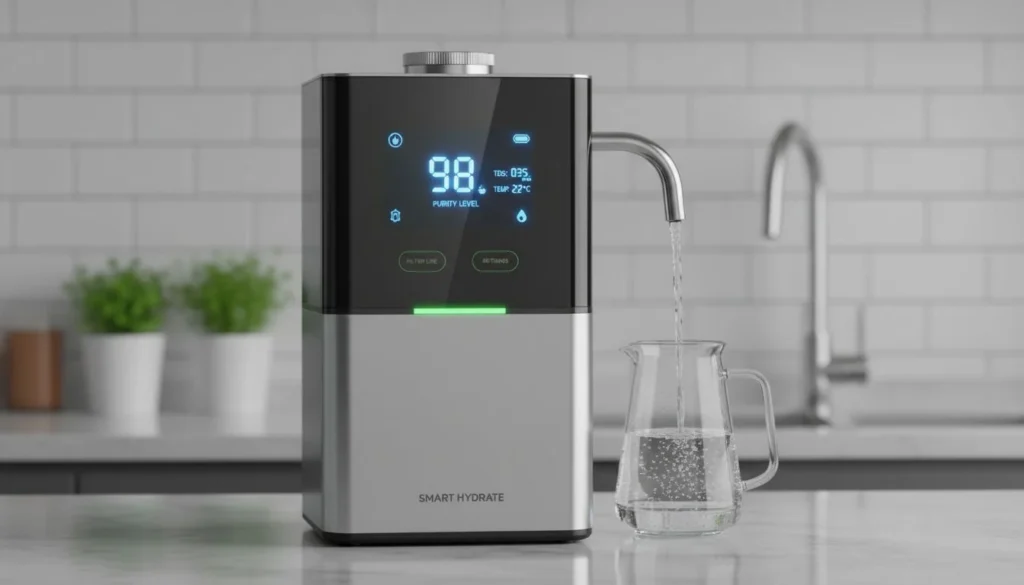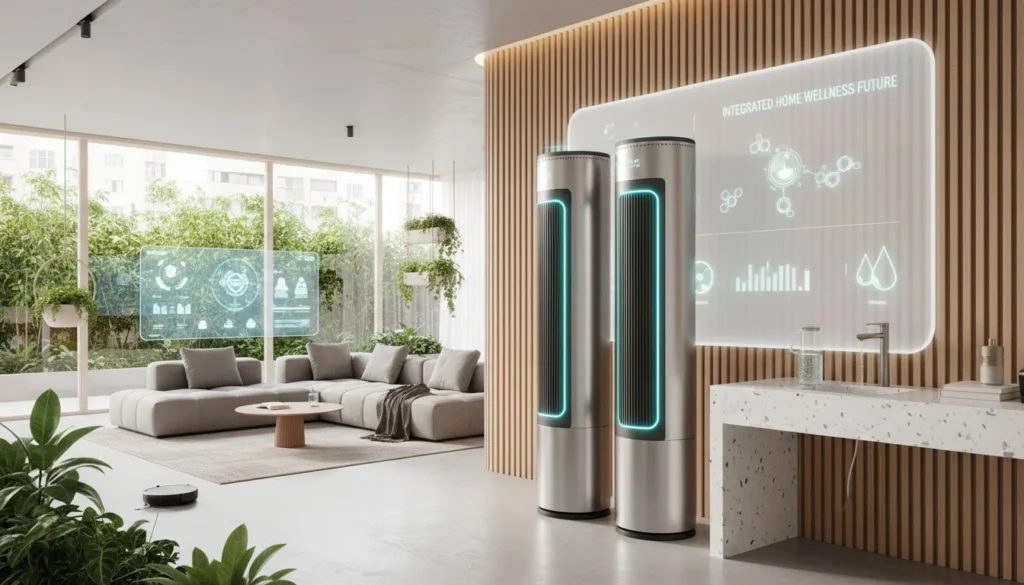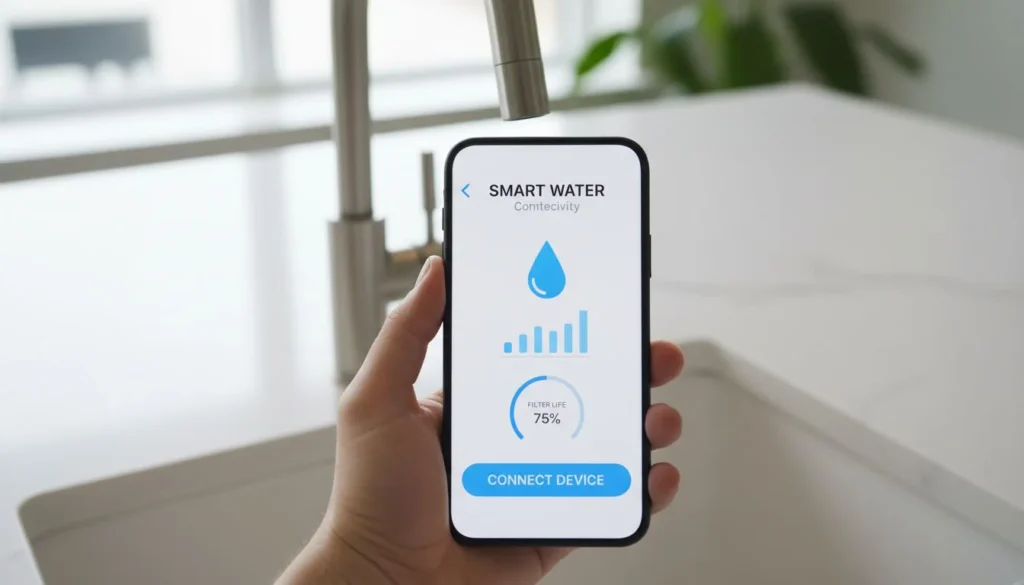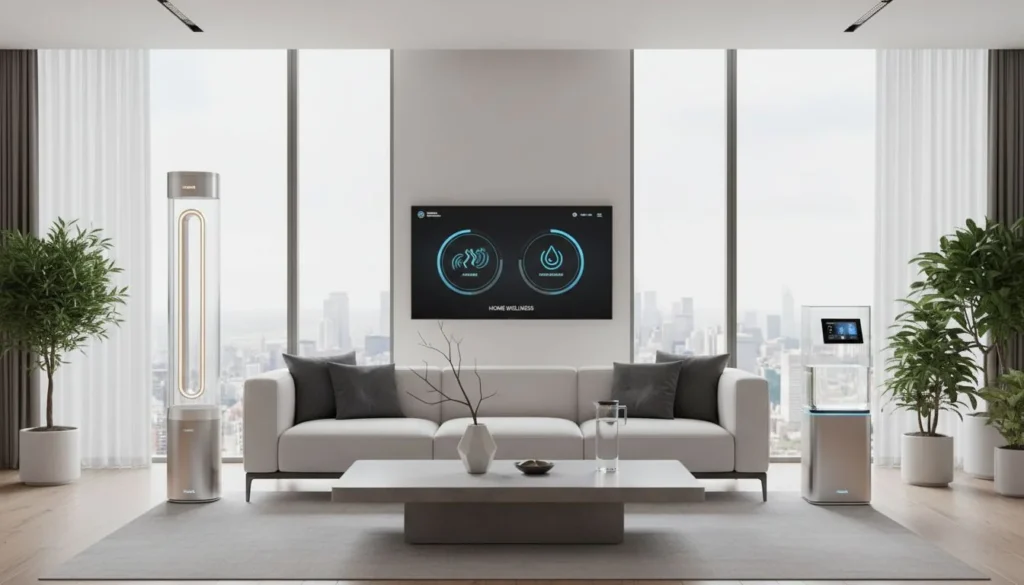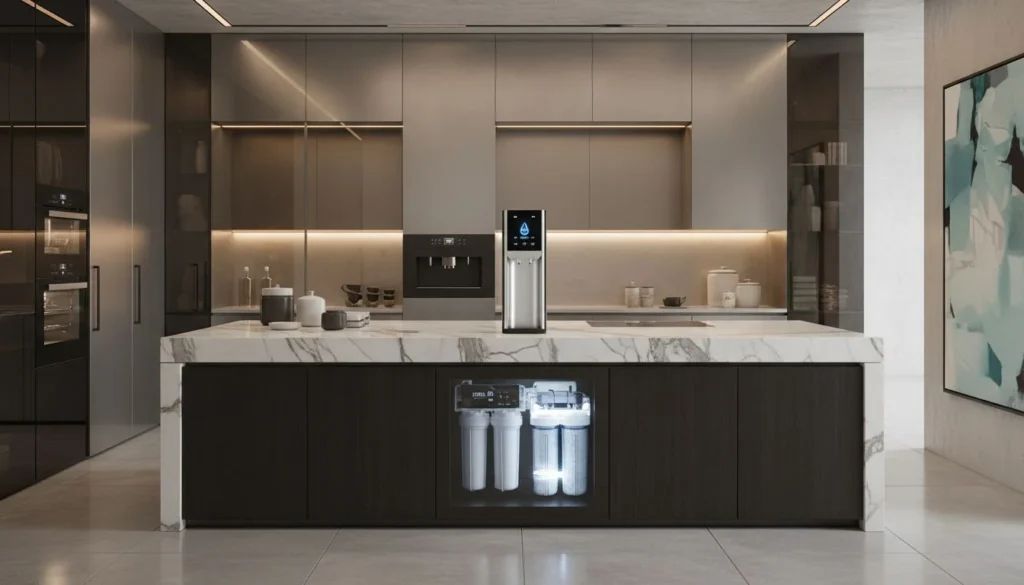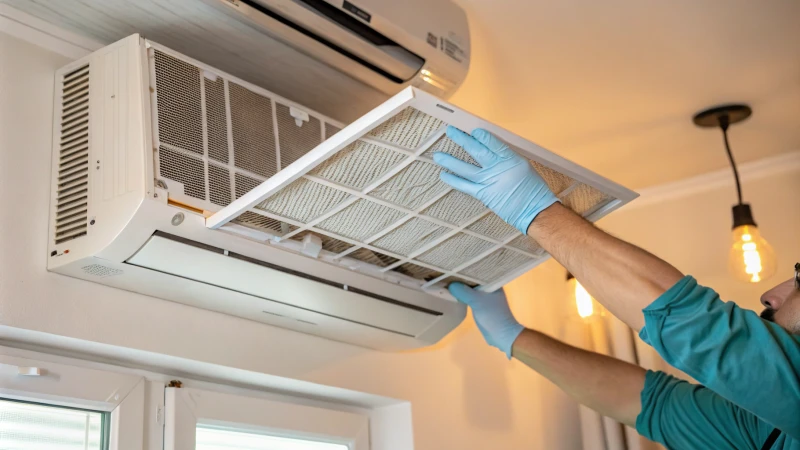
Have you ever thought about how your home's air feels fresher after you change the HVAC filter? Let's discover the easy steps to do it!
To change your HVAC system's air filter, first turn off the system. Find the filter compartment. It is usually near the intake or blower. Take out the old filter. Put in a new filter. Check the arrows on the filter. They need to match the airflow direction. When finished, turn the system back on.
I remember the first time I swapped my HVAC filter. It felt like breathing fresh mountain air inside the house! Choosing the correct filter and knowing when to change it is very important. Learn about different filter types and the perfect moments to replace them. Keep your air fresh and crisp. Really fresh and crisp!
Turning off the HVAC system is the first step.True
Turning off the system ensures safety and prevents dust from circulating.
Airflow direction arrows are not important.False
Arrows ensure correct installation, aligning with airflow for efficiency.
Why Should You Regularly Change Your HVAC Air Filter?
Picture breathing with less difficulty, saving money and increasing the life of your HVAC system by changing a simple air filter often. Regularly switching the filter probably helps in many ways.
Regularly changing your HVAC air filter keeps indoor air very clean. This practice really improves system efficiency. It also reduces energy expenses. Clean filters stop indoor pollution. They also really extend the HVAC unit's life.
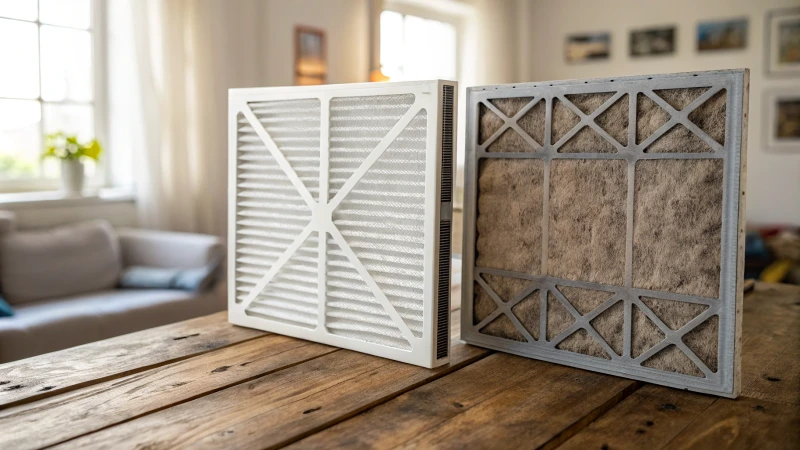
The Role of Air Filters in Your HVAC System
Once, I did not change my HVAC filter and it cost me a lot. Filters stop dust, pollen, and other particles from entering your home's air. A clean filter helps your system work smoothly. A clogged filter makes it hard for your HVAC to function well. It is like a person running a marathon with weights on their ankles.
| Benefit | Description |
|---|---|
| Improved Air Quality | Removes allergens and dust from the air, making it healthier to breathe. |
| System Efficiency | Keeps the HVAC system running smoothly, reducing energy consumption. |
| Cost Savings | Prevents expensive repairs and lowers utility bills by optimizing airflow. |
Health Benefits of Clean Air Filters
Fresh, clean air greets you when filters work well. They reduce allergens, which is really important for people with allergies or asthma1. Switching to a high-efficiency filter led to fewer sneezes and easier breathing for me. The change was fast and noticeable.
Energy Efficiency and Cost Implications
Sky-high energy bills puzzled me until I found out that dirty filters were to blame. Regular filter changes led to lower energy expenses. This small step resulted in big savings and prevented the HVAC from overworking.
Consider setting a reminder to check your filters every three months. It's a simple care step that saves money on repairs by ensuring the system runs smoothly.
Choosing the Right Filter for Your Needs
Filters are not all the same; I learned this through experience. Understanding the MERV rating (Minimum Efficiency Reporting Value) is key:
| MERV Rating | Filter Type | Particle Removal |
|---|---|---|
| 1-4 | Basic | Pollen, dust mites |
| 5-8 | Intermediate | Mold spores, pet dander |
| 9-12 | Superior | Lead dust, humidifier dust |
| 13-16 | Hospital-grade HEPA | Smoke, bacteria, virus carriers |
Better ratings catch more particles but may block airflow if your system isn't strong enough.
Personalized Solutions for Every Home
Homes with pets like mine need more frequent filter changes due to increased particle accumulation. Investing in high-performance filters2 can provide added benefits in such environments by catching unwanted particles that cause discomfort.
Regular maintenance keeps your HVAC system in good shape—it's really an investment in health and peace of mind.
Changing HVAC filters reduces energy bills.True
Clean filters ensure efficient system operation, lowering energy use.
All filters have the same MERV rating.False
Filters vary in MERV ratings, indicating different filtration levels.
What Types of Air Filters Are Available and Which Should You Choose?
Exploring air filters might seem like wandering through a maze. Selecting the correct filter changes your home. It turns it into a place with fresh and clean air. Maybe choosing wisely is very important.
Air filters are available in different types, such as HEPA, electrostatic and pleated. Each type has a different level of efficiency. Choosing the correct filter depends on the size of your home. It also depends on your budget. Your specific air quality needs also matter.
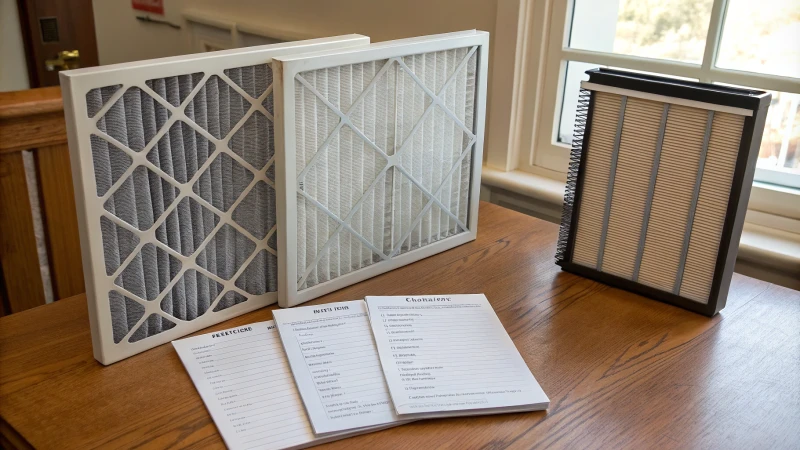
Types of Air Filters: An Overview
I remember when I first realized my sneezing was more than allergies. It opened my eyes to the world of air filters. Here’s what I discovered:
-
HEPA Filters: These filters are like superheroes for clean air. They catch tiny things like dust, pollen, and pet fur. They're great for allergy sufferers like me.
-
Electrostatic Filters: These clever filters trap particles using static electricity. Best part? Many are washable and reusable3, which saves money over time.
-
Pleated Filters: Made from polyester or cotton, these offer larger surface areas for capturing particles. They usually have high MERV ratings, ideal for serious air quality needs.
-
Carbon Filters: Ever smell last night's dinner in your home? Carbon filters help with odors and gases. They handle these like experts.
Understanding MERV Ratings
MERV ratings were confusing to me at first, but they actually are simple:
| MERV Rating | Description |
|---|---|
| 1-4 | Basic dust and lint filtering |
| 5-8 | Mold spores, dust mites, pet dander |
| 9-12 | Fine particles, better for allergies |
| 13-16 | Hospital-grade air quality |
Choose your MERV rating by considering your needs and home environment4.
Factors to Consider When Choosing an Air Filter
From my experience, picking an air filter isn't about the fanciest or priciest option. Here’s what I focus on:
- Air Quality Needs: Do you face allergens, smoke, or general dust?
- Budget: High-quality filters can cost more, though the best isn't always the most expensive.
- Maintenance: Think about how often you really want to replace or clean your filter.
Understanding these points very likely leads to the right choice for your lifestyle. If uncertain, checking expert comparisons5 can bring more insight.
Changing your filter regularly not only improves air quality but also helps your HVAC system work better. Knowing these details helps improve comfort and health in your home.
HEPA filters are best for allergy sufferers.True
HEPA filters trap small particles like dust and pollen effectively.
Carbon filters remove particles like dust and pollen.False
Carbon filters are designed to remove odors and gases, not particles.
How Often Should You Replace Your Air Filter for Optimal Performance?
Picture a world where the air inside your home feels like a fresh mountain breeze. This freshness starts with a simple task. People should change their air filters often. Wondering how often is best? Let's explore this.
To keep your HVAC system running at its best, change air filters every 90 days. Households with pets or allergy sufferers should probably switch filters more often. Maybe every 60 days. Fresh and clean air is important.
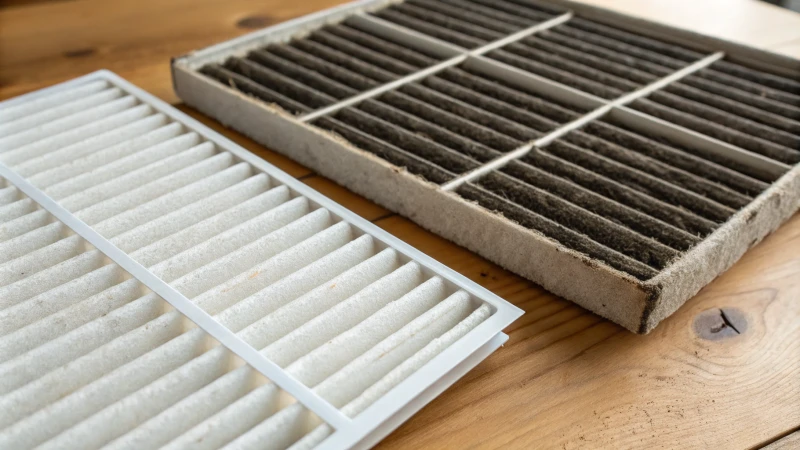
Factors Influencing Replacement Frequency
Deciding when to change your air filter is about more than keeping everything working well. It's about making your home feel like a clean air haven. I recall when we brought Max, our golden retriever, home. His fur is everywhere and it forced us to change filters more often. Pets like Max shed fur and dander, blocking filters quickly. You should think about replacing them more regularly.
| Condition | Replacement Frequency |
|---|---|
| Standard home | Every 90 days |
| Home with one pet | Every 60 days |
| Home with multiple pets | Every 30-45 days |
People with allergies or smokers indoors should also change filters often. Fresh filters capture harmful particles in the air before they cause problems.
Understanding Filter Types
Choosing a filter feels like picking a new pair of shoes - many options, each for different needs. Fiberglass filters6 are like flip-flops - cheap and great for a short time (around 30 days). Pleated filters offer better cleaning and last 60 to 90 days. HEPA filters are ideal for allergy sufferers like my sister, who enjoys clean air; they can last up to six months.
Refer to your manufacturer's instructions for special advice. Remember, different filter types7 can suit your home environment better.
Impact of Neglecting Filter Replacement
Ignoring this simple task can lead to big problems. I found out the hard way when our HVAC system sounded like a monster. A blocked filter was causing the problem. A clogged filter makes the system work harder, leading to higher energy bills and early wear out.
Dirty filters mean bad air quality, which is bad news if anyone at home has breathing issues. Checking your filter helps protect not just your health but also your wallet. Maybe set up calendar reminders or use smart technology8 to handle your replacement schedule effectively. This keeps your HVAC system efficient, offering you peace of mind and clean air all year.
Homes with pets require filter changes every 30-45 days.True
Pet fur and dander clog filters faster, needing frequent changes.
HEPA filters need replacement every 30 days.False
HEPA filters provide superior filtration for up to 6 months.
How Do You Know When It’s Time to Change Your Air Filter?
Do you ever feel like the air inside your home is heavier than your grandma's quilt? Maybe it's time to check that filter!
If more dust appears, weaker airflow happens, strange smells arise or energy bills soar, the filter probably needs changing. New filters mean very good air quality and work better.
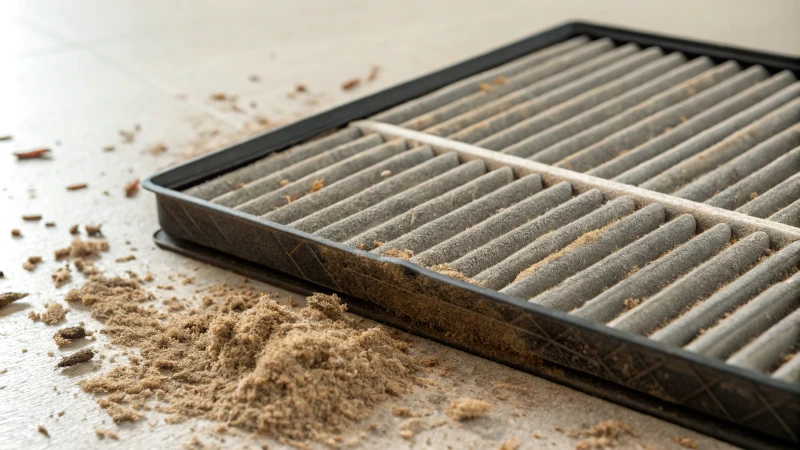
Increased Dust and Allergens
I remember wiping every surface clean in my house, only to see dust again in just a few days. It felt like a sneaky dust gremlin appeared overnight. But it wasn't gremlins. It was a clogged air filter that failed to catch any dust. If you see more dust or hear frequent sneezing at home, it's probably time to inspect your filter9.
Reduced Airflow
When a tissue near the vent doesn't move at all, something is wrong. It happened to me when my AC made my living room feel like a sauna. The cause? A dust-filled filter. If rooms are not cool or feel stuffy, it's probably time to check that filter10.
| Signs | Explanation |
|---|---|
| Increased Dust | More dust on surfaces after cleaning |
| Reduced Airflow | Rooms feel stuffy, tissue test fails |
| Strange Odors | Musty or moldy smells emitted from vents |
| Higher Energy Bills | Rising costs without increased usage |
Strange Odors
A musty smell can make you think you left a wet towel forgotten somewhere. It often signals an old air filter needing a change. Moisture invites tiny organisms, leading to bad smells. Changing the filter helps to remove these unpleasant odors11.
Higher Energy Bills
Last month, my energy bill surprised me. I hadn’t made big changes like adding a room or using more appliances. The HVAC was working too hard due to a blocked filter. If bills rise without obvious reasons, look at your energy consumption trends12.
Routine Maintenance Tips
Changing your air filter every 3 to 6 months is vital, like regular teeth cleaning. This prevents problems and keeps air fresh. Set reminders on your phone or write it on your calendar. Consult professionals for personalized maintenance schedules13 if needed.
Increased dust suggests a clogged air filter.True
More dust on surfaces after cleaning indicates a clogged filter.
Higher energy bills always mean a clogged filter.False
Rising bills can be due to other factors, not just the filter.
Conclusion
Learn how to easily change your HVAC air filter, understand its importance for air quality and system efficiency, and discover tips for selecting the right filter for your home.
-
Explores how high-efficiency filters can improve indoor air quality for allergy sufferers, enhancing their well-being. ↩
-
Provides insights into choosing high-performance filters and their impact on air quality and system efficiency. ↩
-
Explore how electrostatic filters can be washed and reused, offering a cost-effective solution for maintaining air quality. ↩
-
Learn about different MERV ratings to find the best filter for your specific air quality needs and home environment. ↩
-
Gain insights into how various air filter types differ in performance and which might suit your needs best. ↩
-
Learn about various air filter types to choose the best one for your needs. ↩
-
Discover how pets influence air filter lifespan and what adjustments might be necessary to maintain indoor air quality. ↩
-
Explore how smart home devices can simplify HVAC maintenance and improve efficiency. ↩
-
Understand how dust buildup relates to filter efficiency and when it signals the need for replacement. ↩
-
Learn quick tests to assess whether your HVAC system is circulating air properly. ↩
-
Discover common causes of HVAC-related odors and how they link to filter conditions. ↩
-
Find out how clogged filters can lead to increased energy costs. ↩
-
Get expert advice on setting a regular schedule for filter maintenance. ↩


